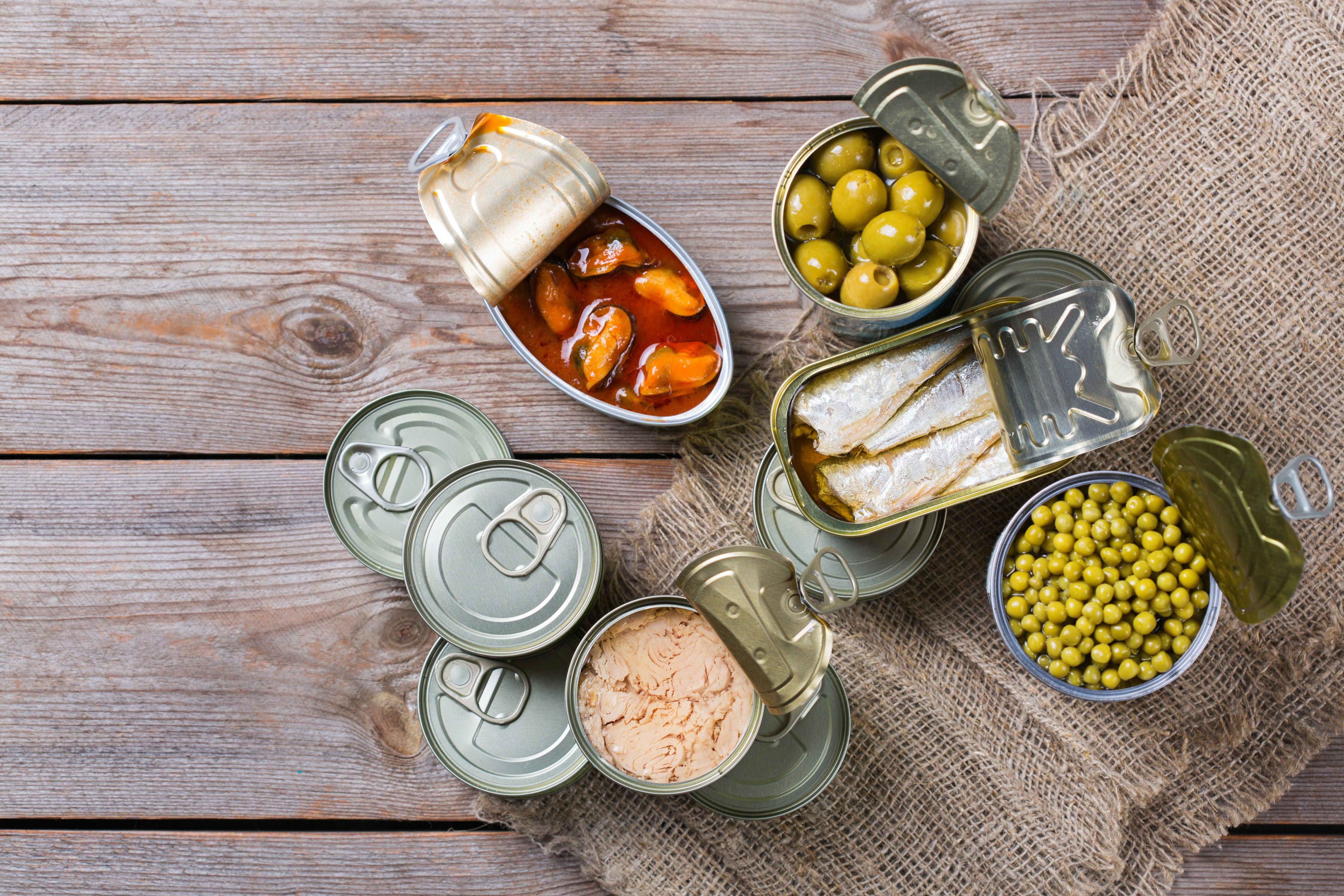
The Hidden Truth About Canned Foods
The Canned Dilemma: Unveiling the Convenience and Complexities of Preserved Foods in Modern Diets
Found in grocery lists and pantries anywhere you look are canned foods. From sardines, tuna, corned beef, soup--almost any food can be stored in tin cans. Canned food has been around since the 1800s, and was further popularized to feed armies during war. Today, it remains a staple in our diets because it makes a quick yet tasty meal. It’s also an alternative to food when fresh produce is unavailable. Out of 1000 Americans, 60% say they consume canned food once or twice a week, proving that canned food is here to stay.
Collectively, most people are aware that processed, canned foods are unhealthy. But there are many variations of canned food like tomatoes, corn, mushroom, peas, spinach and other fruits and vegetables that are widely available. Don’t think that because the contents of the metal cans are fruits and vegetables, it automatically means that that food is nutritious. These fruits and vegetables go through the same process of canning and heating that other canned foods go through. Even people who eat health-consciously fall victim to the dangers of canned food.
Why is canned food unhealthy anyway? First, is because it lacks nutrition. Most canned food contains high amounts of sodium and sugar. For instance, a single can of soup, which is the most common canned food in America, contains 2,175 mg of sodium, which is almost the entirety of the 2,300 mg recommended sodium intake. To our surprise, the same can of soup contains an excess amount of sugar too. Who would think that a can of savoury, salty soup would contain a lot of sugar? In reality, sugar is hidden in food we don’t normally consider as sweet, and almost all processed food contains sugar beyond the recommended sugar intake of 6 teaspoons daily.
If a can of savoury soup contains a lot of sugar, then what more in a can of mixed fruits? Canned fruits are often suspended in syrup, sweeteners and juices that contain too much sugar. Food manufacturers use sugar and salt to hit what food insiders call the “bliss point.” The bliss point is when a consumer likes a certain food product best, despite all the added sugar and sodium.
Therein lies the problem: food manufacturers are getting away with selling us delicious, unhealthy food that we keep coming back for. Excess sugar and salt result in many avoidable diseases. Numerous research has already shown links between sugar and obesity, cardiovascular disease, fatty liver disease, diabetes, Alzheimer’s disease, cancers and polycystic ovary syndrome (PCOS) for women. Without government intervention and regulation, these unhealthy processed foods will continue to line grocery aisles and find their way in our cupboards. Until then, having this knowledge will help you make informed choices for you and your family.
The steps involved in the process of canning food also contribute to the lack of nutrition in canned foods. The steps are typically processing, where the food is chopped, sliced, pitted, skinned etc., sealing, which involves putting the food inside the cans, and heating, where the cans are heated to kill harmful bacteria and prevent spoilage. In these steps alone could be health and sanitary hazards. How do we know that the factories and its personnel are practicing hygiene in the handling of the produce? Harmful bacteria can seep its way through the metal cans and cause illnesses like Botulism, which can be fatal when left unchecked. Moreover, the high heat that canned foods are subjected to, kills the essential enzymes, vitamins, minerals and nutrients that fresh food would otherwise contain.
Another reason why canned foods are unhealthy is the metal can itself. BPA, or bisphenol-A is a chemical often used in food packaging, including cans. BPA is used in the lining of cans, and studies have shown that BPA migrates from the lining to the food inside the metal containers. Studies have also shown that an increased consumption of canned food also increases BPA exposure. This should be a cause of alarm because BPA has been shown to have potentially toxic effects. BPA can impact hormones, tumor formation and DNA damage. Furthermore, some human studies have shown evidence that BPA is linked to heart disease, type 2 diabetes and male sexual dysfunction.
With all that said, fresh food is the best choice for a safe and nutritious meal. While canned foods provide us an easy and convenient way to eat food in the absence of fresh or in-season foods, it is important that we read the nutrition facts and make informed choices. Occasionally popping open a can of chicken soup when you’re down with a cold is excusable as long as we supplement our diets with an alternative source of nutrition. This is what Koso Med products specialize in. Koso Med products contain enzymes, vitamins, minerals, nutrients, prebiotics and probiotics from fresh, organically grown fruits, herbs and vegetables through fermentation. Fermentation preserves these essentials by acting as a predigest of the solids, making it easy for the body to absorb. The fermentation process is a centuries-old, patented, traditional Japanese method that utilizes 52 strains of friendly soil bacteria that eliminate the need for artificial preservatives and heat, ensuring the integrity of the fresh produce. Not only will Koso Med Products supplement a healthier diet, it can detoxify the body from all the excess sugar and salt, making it the best companion to a nutritious and health-conscious diet.
Having the knowledge behind canned foods coupled with an adequate source of nutrition available can help us to make better choices for ourselves and our loved ones. Shopping and cooking fresh food can save us a lot of pain in the long run, and ensures a longer, better quality of life.